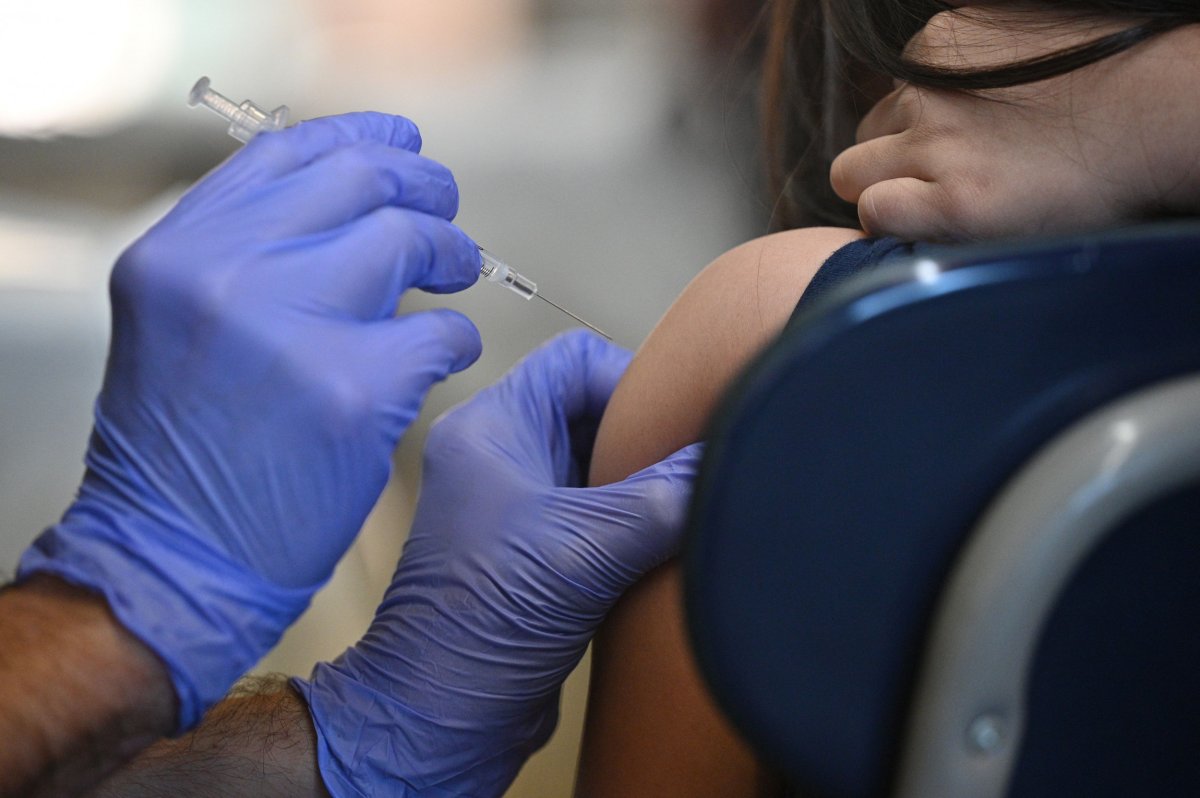The current generation of COVID vaccines is "not good enough" at blocking viral transmission to bring an end to the pandemic, the chief executive officer of the Infectious Disease Research Institute (IDRI) said.
The IDRI is a biotech non-profit based in Seattle that's working on creating new treatments for infectious diseases, including COVID vaccines.
Despite being able to roll out vaccines at a faster rate than most countries, only 60 percent of the U.S. population is fully vaccinated, due to hesitancy and skeptism toward the jabs.
In an interview with Newsweek, Dr Corey Casper said that a good way to overcome vaccine skepticism is to be more honest about the pros and cons of the current vaccines.
"First and foremost, we have to acknowledge both the strengths and the limitations of our current vaccines. So strengths are enormous — I'm very pleased that the first-generation vaccines prevent hospitalizations and deaths, but we also have to be humble: they're not good enough and they're not blocking transmission."
"They are having to be re-administered now in the United States every five months, so this is not a vaccine program that is going to get us out of this pandemic."
The current generation of vaccines has been extremely effective at stopping deaths and severe illness from COVID. However, they haven't been nearly as effective at blocking transmission of the virus, and people can get the virus multiple times, even if they are fully vaccinated.
Scientists are now looking into developing T-cell vaccines, which intend to significantly reduce transmission of the virus as well as severe illness. A January study by Imperial College London found that those with higher numbers of T-cells were less likely to get COVID.
It was the first study to look at how the presence of T-cells, a type of white blood cell that the body generates in response to infections, at the time of COVID exposure influences whether someone becomes infected. The scientists who carried out the study said the findings provide a blueprint for a second-generation, universal vaccine that could prevent infection from current and future SARS-CoV-2 variants, including Omicron.
Casper said that acknowledging the limitations of the current vaccines "will build public confidence" in governments who are administering the vaccines, therefore increasing uptake of the jabs.
Need for 'Durable' Vaccines
He said that governments and scientists need to introduce new vaccines that are "durable for years, active against many variants, and really protective against transmission."
"If you have a candidate like that, I suspect you'll [see] many more people would want to get it," the doctor added.
Casper said he was a "big believer" in vaccine mandates because he believes choosing not to have the vaccine is not really a personal choice.
"People say: 'well, I should have the freedom to choose whether I get a vaccine,' but your decision impacts the rest of us. In the United States right now, 100% of ICU beds are fully occupied, mostly by people who elected not to get vaccinated.
"That's a personal choice, but now the patients I take care of with cancer, with heart disease, cannot find a bed in the hospital. When you have something that is so impactful as a personal decision that reverberates through society, I think it has to be something that has to be mandated."

Uncommon Knowledge
Newsweek is committed to challenging conventional wisdom and finding connections in the search for common ground.
Newsweek is committed to challenging conventional wisdom and finding connections in the search for common ground.
About the writer
Jack Dutton is a Newsweek Reporter based in Cape Town, South Africa. His focus is reporting on global politics and ... Read more
To read how Newsweek uses AI as a newsroom tool, Click here.








